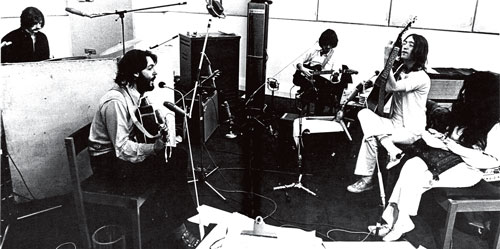 When journalist/filmmaker Tony Palmer was working for the BBC in the mid-’60s, his friend John Lennon offered a suggestion. “His continuous complaint to me was that there were great musicians who simply couldn’t get on television,” says Palmer. “And that I had a responsibility to get them on television.”
When journalist/filmmaker Tony Palmer was working for the BBC in the mid-’60s, his friend John Lennon offered a suggestion. “His continuous complaint to me was that there were great musicians who simply couldn’t get on television,” says Palmer. “And that I had a responsibility to get them on television.”
In 1968, Palmer delivered All My Loving, a groundbreaking documentary about rock icons such as the Who, Cream and Jimi Hendrix. But Lennon wasn’t done with his suggestions. Why not a doc on the entire history of popular music?
“I thought it was impossible,” says Palmer of the project. “[Lennon] said, ‘You know what you should call it, right? All You Need Is Love, because that’s what it’s about.’ So now I have a title like no other and have Mr. Lennon, who no doubt would find me and complain if I didn’t get on with it.”
Based on Lennon’s prompting, Palmer directed a 17-part, 15-hour documentary that encompassed ragtime, blues, jazz, folk, swing and country as well as rock ’n’ roll. All You Need Is Love includes interviews with nearly every major player from the music world, including Bing Crosby, Elvis Presley, Phil Spector, Muddy Waters, Tina Turner, Paul McCartney and Lennon. The series, broadcast around the world between 1976 and 1981, is now commercially available for the first time as a five-DVD boxed set from MVD Visual. Why the 27-year wait?
“They’re called distributors,” says Palmer. “They’re brainless. They just sat on it.”
Regardless, Palmer is as proud today of the collection as he was in ’76. He only has one regret: The financiers wouldn’t give him the money to continue so he could include punk rock.
“[The series] changed the atmosphere in which popular music was considered,” says Palmer. “It paved the way for people like Ken Burns to start making far more detailed histories of a particular aspect of music. TV companies at that point backed off from anything on this scale because they thought that popular music wasn’t worthy of this treatment. This phenomenon called popular music, which is in all of our lives 24 hours a day, deserves to be treated as a proper source of historical study. This is about people who’ve given us something the last 100 or so years that is essential to our lives.”






